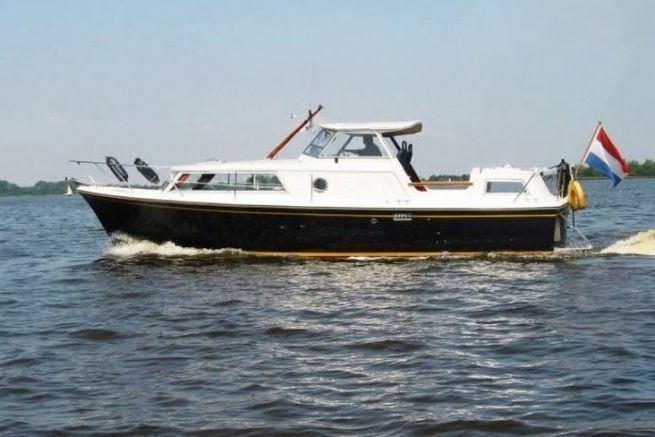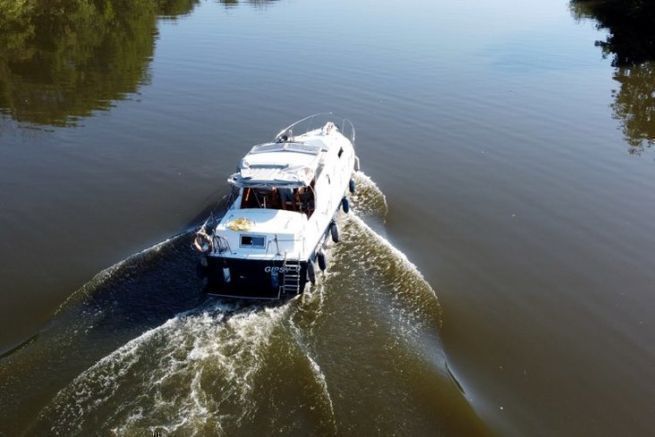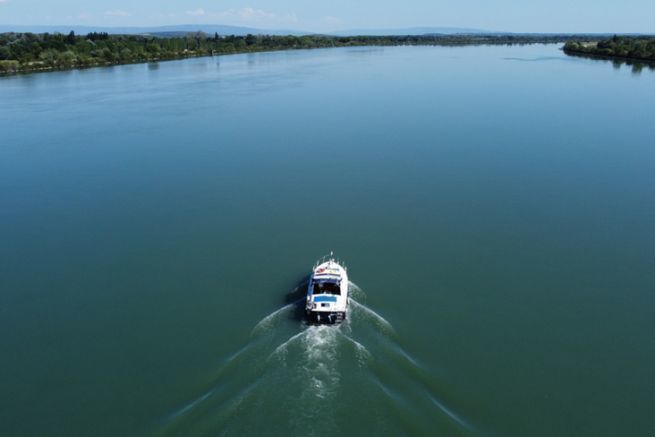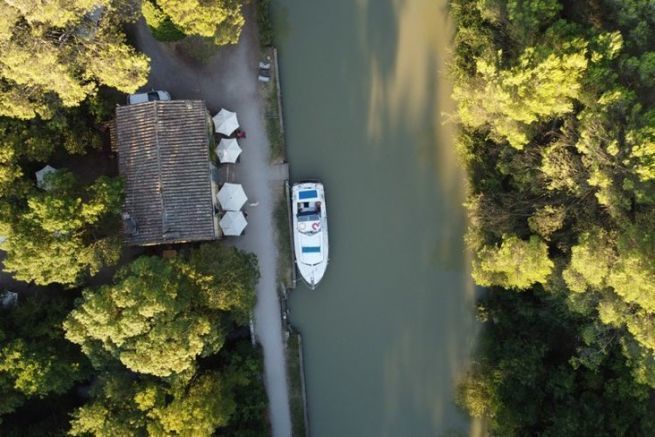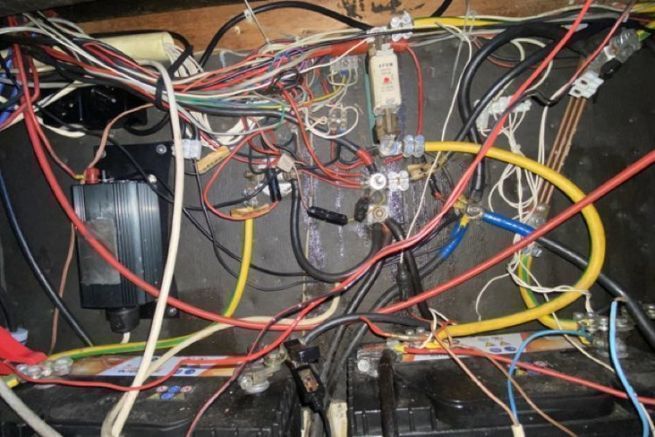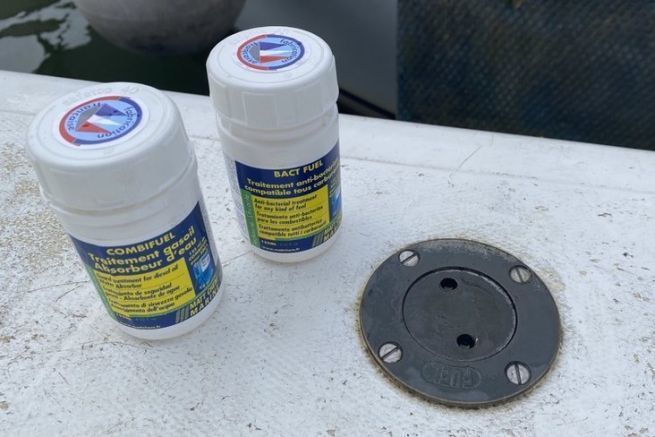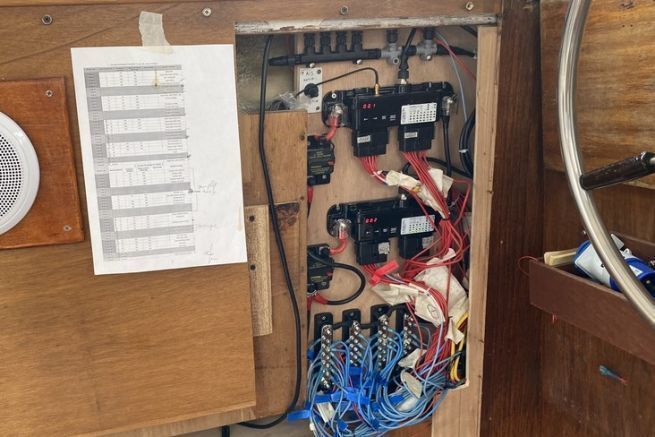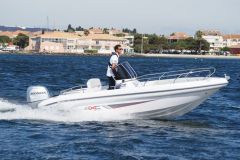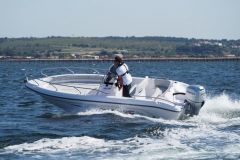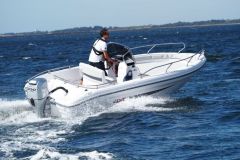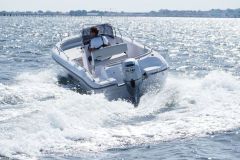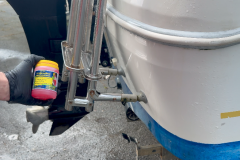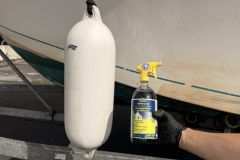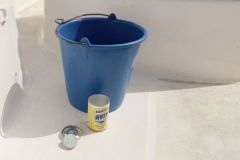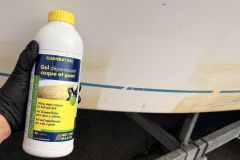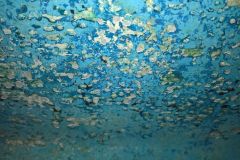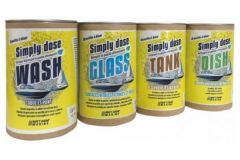My motor launch dates from 1973. Although I don't have a very accurate maintenance history, I have every reason to believe that the large sheet metal tank behind the engines is original. It holds 400 liters of fuel.
When I bought this boat in June 2021, it was half full, with about 200 liters of diesel. According to the seller, due to the Covid and other constraints, the boat had not sailed for 3 years. Not an ideal situation to conserve fuel. Even if I learned later that this one had received an additive (but which one?) to keep it in good condition.
The danger of condensation
In a tank (as everywhere on a boat) condensation forms. This water formed on the walls of the tank mixes with the fuel. In addition, the vent, which is always open, can also bring moisture.
Heavier than diesel fuel, the water settles at the bottom of the tank and is quickly sucked out when the engine is running, causing damage to the mechanics.
To avoid this, the first thing to do is to keep your tanks full during the winter period of non-use. By leaving the tanks full of diesel, you limit the surfaces on which condensation can form. This is what I did when I arrived at my home port for the winter.
Why can water in diesel fuel damage the mechanics?
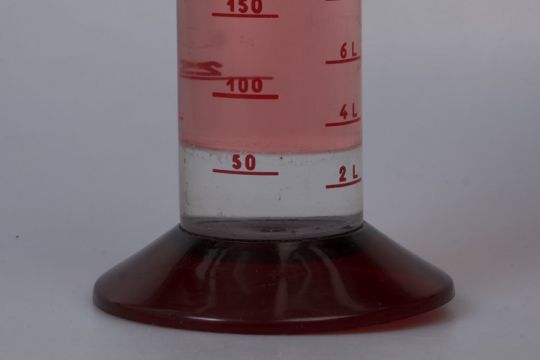
A diesel engine is fed by an injection pump before the injectors. It is a very sensitive precision mechanism that does not appreciate water at all. The appearance of rust spots can upset it. But in addition to this defect which obliges to supervise its decanting filters, water brings especially a much greater problem: the development of bacteria.
Indeed, water brings oxygen to micro-organisms which can then develop in the diesel by feeding on it. During their growth, these bacteria will create waste. This waste, visually a kind of sludge, clogs the filters and corrodes the tank and the pipes. In short, it must be avoided at all costs!
This is exactly the type of sludge I discovered on the top of my diesel filter when I changed my oil and filters. It's time for me to react.
The treatment of diesel fuel
To protect against these malfunctions, MattChem offers two products that are complementary:
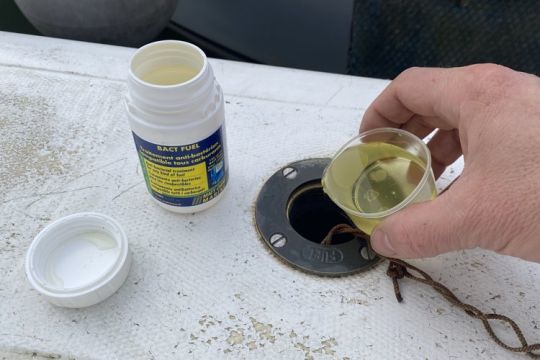
- The Bact-Fuel destroys micro-organisms that can colonize the tanks. It is therefore advisable to put it in the tank at the time of wintering. It is an economical product since a 125 ml dose treats 1250 liters of fuel. In my 400-liter tank, I put 1/3 of the bottle. The rest is not wasted since this treatment is both curative (to kill the bacteria already present), but also preventive, to prevent new ones from reinstalling. I plan to reapply Bact-Fuel every time I refuel.
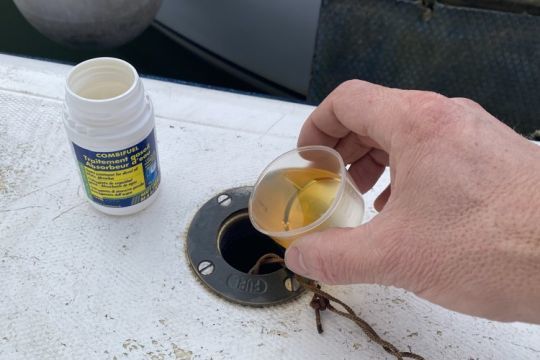
- In addition to Bact-Fuel, I added Combifuel . It is a water emulsifier. That is to say that it will reduce the water molecules which will be able to mix with the diesel and to be absorbed by the engine at the same time as the fuel, with the progress of the future navigations. The 125 ml jar of Bactfuel is designed to treat 500 liters of fuel. I poured a full bottle into my tank, hoping that I would not need it again. Indeed, from now on my boat will winter with a full tank. Even if I am not safe from a gas station tank bottom which involuntarily delivers water to me (alas it is quite frequent).
Between 2 and 4 cents per liter
At the ship, the Bact-Fuel is available at 25.70 euros (125 ml) and the Combifuel at 22.39 euros (125 ml) - Recommended retail price 2021. A kit (Kit Fuel) which includes the 2 bottles is available at 46,34 euros. For larger tanks, these two products are also available in 1 and 5 liter cans.
If we convert the price of the bottle to the liter of fuel treated, the Bact-Fuel comes to 2 cents/liter and the Combifuel to 4 cents/liter. A very small cost considering the price of a liter of diesel fuel and the cost of the avoided repairs (immobilization of the boat, cleaning of the tank, damaged diesel pump, etc.).

 /
/ 

